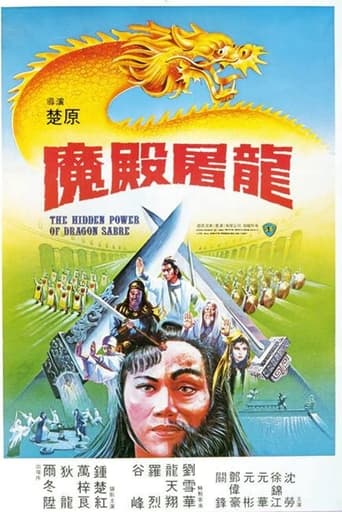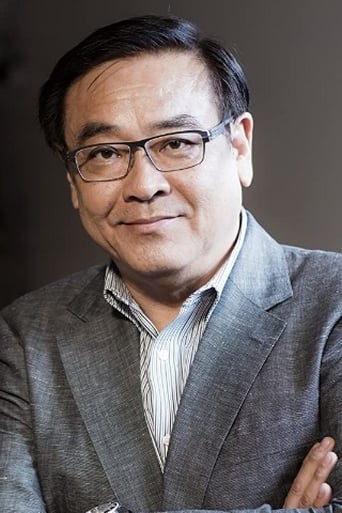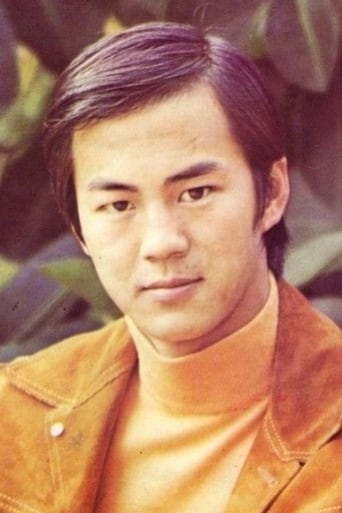

The Hidden Power of the Dragon Sabre (1984)
The story concerns the efforts of the emperor to obtain the Dragon Sabre and it's companion magic sword so the "martial world" will be forced to respect him. He enlists a bad guy who plots a massacre of the Mongolians to blamed on the "Ming cult" so that the Mongolian hero played by Ti Lung will attack and steal the sabre from the cult and then give it to the bad guy who has in the meantime stolen a powerful magic sutra from Budhhist nuns, kidnapped a Mongolian Princess and is trying to become a Yin/Yang fighter which looks like ... wait, none of this makes much sense, but that's the film. Derek Yee plays the hero of the Ming cult who is trying to find out who is framing the cult for the massacre.
Watch Trailer
Cast
Reviews
The film makes a home in your brain and the only cure is to see it again.
It’s not bad or unwatchable but despite the amplitude of the spectacle, the end result is underwhelming.
This movie tries so hard to be funny, yet it falls flat every time. Just another example of recycled ideas repackaged with women in an attempt to appeal to a certain audience.
Actress is magnificent and exudes a hypnotic screen presence in this affecting drama.
THE HIDDEN POWER OF THE DRAGON SABRE opens with what look like flashbacks from the two HEAVEN SWORD AND DRAGON SABRE movies (see Dr. Craig Reid's book, THE ULTIMATE GUIDE TO MARTIAL ARTS MOVIES OF THE 1970s). The Mongolian Hawk, Tieh (Ti Lung), who lives on Heaven Mountain with his Princess, becomes embroiled in a plot to steal the Dragon Sabre (said plot hatched by the unscrupulous Emperor Zhu, played by Ku Feng,and the gender-bending face-changer, Song Quingshu). The Ming Cult, led by Zhang (Derek Yee), is framed for the murder of Tieh's Mongolian hordes and later wiped out as well. While some of the fx are indeed cheesy (and dated), the film overall is a bit of fun (everybody, it seems, is fully capable of flight, which lends the proceedings a comic book feel rarely captured in American movies- John Carpenter's BIG TROUBLE IN LITTLE CHINA being a notable exception). While I prefer the invisible release of such powers normally used in these movies (it's far more mysterious than the cheesy lightshow fx), the use of colorful fx THEN was akin to the overuse of cgi NOW (i.e.; a sign of the times- which DATES movies). One of the more memorable fx has to be the 180 degree turn of the upper torso of Lion King near the beginning of the movie: it's VERY much in keeping with the tone of the story.
The Heaven Sword and Dragon Sabre are two fabled weapons in Jin Yong's novel of the same name, and though I haven't read the original book, my recollection of the story goes back to the 80s where Tony Leung Chiu-wai was playing the lead role of Zhang Wuji in the Hong Kong TVB series. In fact, days were the those that I was weaned on plenty of Jin Yong martial arts stories through television.Big screen adaptations of the novels are always difficult because one has to decide just how much material to squeeze into a two hour movie. And adaptations have ranged from the arty-farty remote resemblance like Wong Kar-wai's Ashes of Time, to the plain comedic like The Kungfu Master starring Jet Li, which was actually supposed to be two movies, but had the second part canned. And some, like The Hidden Power of Dragon Sabre, just reused characters and put them into new creative spin offs, which unfortunately, doesn't make much sense in its treatment.I don't think this story is canon nor Jin Yong endorsed, since the background of some characters and artifacts have been changed. For example, the Jiuying and Jiuyang Zhen Jing manuals are not stored in both swords. Rather it was the war manual Wu Mu Yi Shu which was kept inside the Dragon Sabre. Also, combining both weapons doesn't produce laser beams like what's depicted in the movie (don't ask!) but rather, the clanging of two swords together will break them to reveal the manuals. But perhaps what's more ludicrous, is the fusion of some science fiction elements into the story, with a set I swear looks like a poor man's cousin of Star Trek coupled with a roof adorned by faux pas Biblical-like chapel drawings , and some God like element from a passing of a Caucasian!That aside, this story tells of the aftermath of that in the novel, where the Emperor Zhu Yuanzhang collaborates with the villain Song Qingshu (Alex Man) to attack the Mongolians, led by a Princess (a very young Cherie Chung, in a classical flower vase role) and General Tieh Zhen, played by Ti Lung. The imperial forces under the scheming Qingshu, disguise themselves as Ming Cult members in the attack, thereafter framing Zhang Wuji (Derek Yee, in pre-directing days) who is leader of the sect. Familiar Ming Cult members like the Bat King and Wuji's Godfather the Golden Haired Lion also make supporting appearances, but this movie sits squarely on the rivalry amongst General Tieh, Zhang Wuji and Song Qingchu, who becomes a Dong Fang Bu Bai wannabe with his androgynous transformation, as well as superior martial arts skills.But don't watch this movie for its martial arts or action set pieces. There are none which warrant special mention, and nothing truly groundbreaking or classical in that sense. The action scenes are long drawn, and sad to say, boring, with plenty of repetitive moves and exploding bodies. What's more, the special effects team was probably having a field day with the laser effects, and almost every battle feature so many laser beams, you will not be faulted if you think you're watching Star Wars. Unless it's the Liu Mai Shen Jian skill, I don't really recall Jiuying or Jiuyang Shen Gong being laser beam producing, and the final fight was pretty ridiculous for its light show.As with many Shaw Bros kungfu movies, the ending does leave one wanting for a more satisfactory finish, since most of them usually stop short by the time the baddies get their just desserts. If the West have their spaghetti westerns, then these are the equivalent. Some fight scenes are violent, but blood doesn't flow as much as in some of its counterpart movies. Don't get me wrong, they're still plenty of fun though, with their outlandish costumes, stilted dialogue and cheesy kungfu moves.
The influences of western films were very much in evidence by this point at the Shaw fantasy film division. This particular film is full of explosions, ray battles and even a set out of a Star Wars film even though this all takes place in ancient China. Plexiglas swords, shameless wire-work and endless fighting complete the extravaganza. It could be fun like other Shaw films from the same era but here there seems to be no sense of humor about the absurdities.The story concerns the efforts of the emperor to obtain the Dragon Sabre and it's companion magic sword so the "martial world" will be forced to respect him. He enlists a bad guy who plots a massacre of the Mongolians to blamed on the "Ming cult" so that the Mongolian hero played by Ti Lung will attack and steal the sabre from the cult and then give it to the bad guy who has in the meantime stolen a powerful magic sutra from Budhhist nuns, kidnapped a Mongolian Princess and is trying to become a Yin/Yang fighter which looks like ... wait, none of this makes much sense, but that's the film. Derek Yee plays the hero of the Ming cult who is trying to find out who is framing the cult for the massacre.It could all be fun. "Holy Flame of the Martial World" is an example of a senseless magic sword film that is entertaining by it's good sense of humor about itself. This film however gets lost in the endless special effects (which are not very special at times) that make it dull and eventually boring. This one has the largest number of stage explosions I've seen in any Shaw production. It also might have the most animated ray effects as well. Unfortunately Yuen Chor makes no attempt to pace the use of the effects or ramp up the excitement for the end of the film. The plentiful wire work is at one point some of the worst I've seen in a Shaw production. The actors just swing back and forth.You might enjoy this if you are in the mood for gaudy excess with little else to recommend. A better film in this genre is Tsui Hark's "Zu: Warriors of the Magic Mountain" from a year earlier (which was probably an inspiration for Dragon Sabre). It's even more nuts but at least it's fun.


